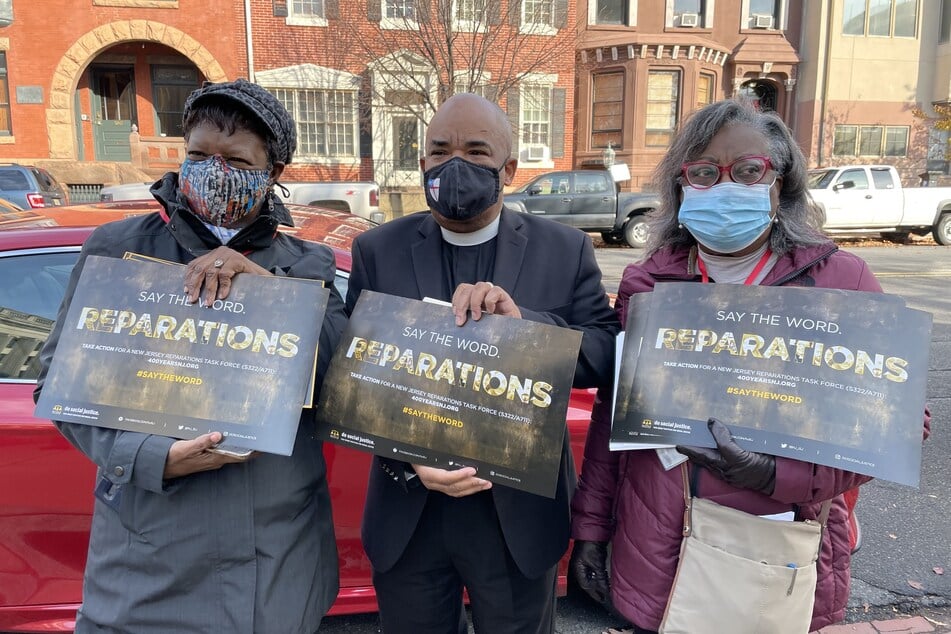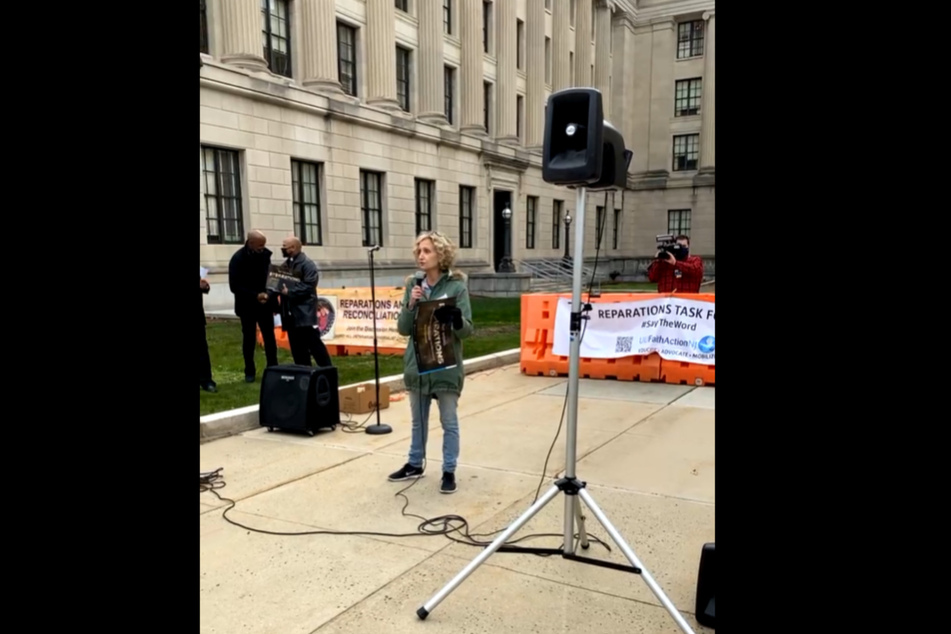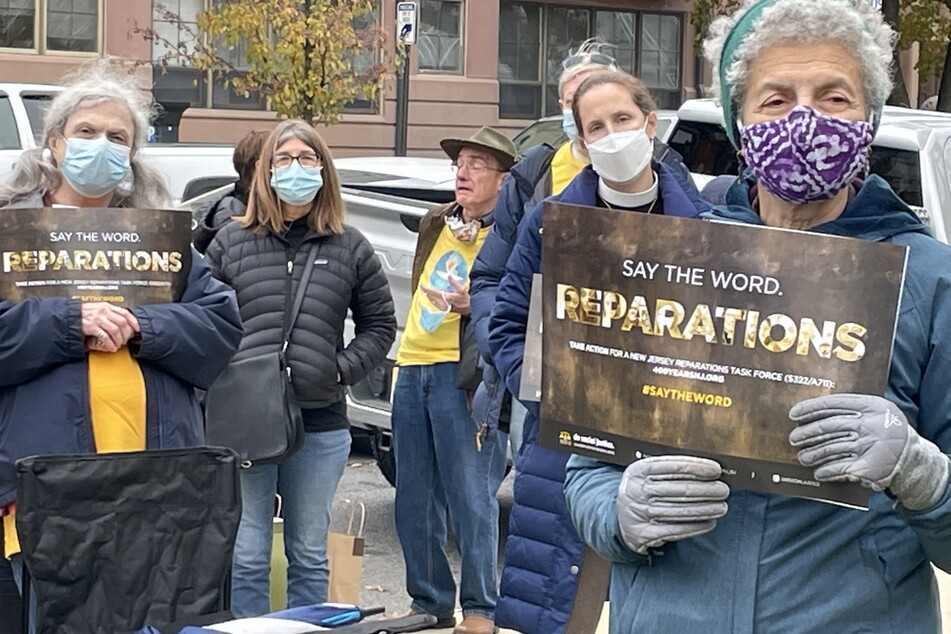"Say the Word": New Jerseyans rally for reparations for Black Americans
Trenton, New Jersey – Activists gathered in front of the New Jersey State House on Thursday at 11:00 AM to demand the formation of a Reparations Task Force.

The rally, organized by the New Jersey Institute for Social Justice (NJISJ) in coordination with the Say the Word coalition of faith-based and other advocacy groups, has gathered protesters of many backgrounds, all in favor of legislation to create a Reparations Task Force.
The bill in question, known as A711 in the Assembly and S322 in the Senate, calls for a commission to study and develop reparations proposals for Black Americans in the state of New Jersey.
The group of experts would be charged with investigating the state's history of slavery and racial discrimination in addition to ongoing racial disparities resulting from generations of disenfranchisement.
If it passes, New Jersey would become only the second state in the US, after California, to form such a task force.
NJISJ Communications Director Laurie Beacham told TAG24 how the idea to launch the Say the Word campaign started. During a conversation on reparative justice with Assembly Speaker Craig Coughlin, he apparently asked NJISJ CEO Ryan Haygood, "Do you have to call it that? Can you use another word? Can you just call it 'racial justice'?"
NJISJ and their allies believe there's real power in saying the word "reparations," despite Coughlin's concerns.
"I think there's a certain degree where people are tired of having to sugarcoat everything," Beacham explained. "This is what we are talking about. This is the kind of relief that's needed."
"Slave state of the North"

One of the big misconceptions the Say the Word coalition is up against is the idea that racial justice issues aren't as pressing in New Jersey since it's a Northern state.
"In New Jersey, we like to think of ourselves as a progressive state, an enlightened state, and in many ways we are. But when it comes to racial justice, we actually have a lot of work to do," Beacham said.
She noted that New Jersey was known as the "slave state of the North," as it was the last in the region to abolish slavery. Even after legislation was signed in 1804, "freed" Black people were kept in forms of de facto slavery, including long apprenticeships.
The last 16 enslaved people in the state did not experience emancipation until 1866.
Today, years of slavery and exclusionary practices have created huge gaps in Black versus white attainment. NJISJ found that the state has the highest disparities in Black-to-white infant mortality rates and incarceration rates for adults and children. New Jersey is also the sixth most segregated state in the entire country for Black students. While white New Jerseyans' family median net wealth is the nation's highest at $352,000, Black families' averages just $6,100.
"We believe that those disparities are not an accident. They're not the result of individual behavior or failure," Beacham insisted. "They are the result of generations' worth of structural racism in policy."
"Because they were created by design, they have to be dismantled by design."
Community response

The response from the community has been overwhelmingly positive, Beacham noted.
"Our numbers are off the charts. We have more responses to that action alert than for any other topic, and whenever we send out an e-blast about this topic, our open rates are the highest," she said.
"It's really collecting the energy of that response to overwhelm that fear-based, not-wanting-to-ruffle-any-feathers contingent."
The job is tough at the moment following New Jersey's close election in November. Incumbent Governor Phil Murphy, a Democrat, narrowly fended off Republican challenger Jack Ciattarelli to hold on to the seat.
"A lot of legislators are evaluating, and we're encouraging that reevaluation not to result in retreat but instead to use this time to be bold and do what they know is right," Beacham said.
That's why NJISJ and other allies are hitting the streets to let lawmakers know the people of New Jersey want transformative change.
Beacham encouraged anyone who wants to support the cause to call their legislators using the Say the Word coalition's online tools. She also urged people to sign up for NJISJ newsletters to stay up to date with upcoming actions.
"We need to just be honest with ourselves about who we are," Beacham concluded. "We need to look at what our history is and the flow of that history into policies that led us to the disparities we have today so that really strategic, realistic, targeted reparative justice policies can be recommended."
Cover photo: New Jersey Institute for Social Justice

